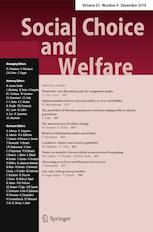Loconto A., Desquilbet M., Dorin B., Couvet D., Moreau T., (2019) The Land sparing – Land sharing controversy: tracing the politics of knowledge, Land Use Policy.
Abstract
Feeding 9 billion people by 2050 on one hand, and preserving the erosion of
biodiversity on the other hand, are two shared policy goals at the global
level. Yet while these goals are clear, they are to some extent in conflict, because
agriculture is a major cause of biodiversity loss, and the path to achieve both
of them is at the heart of a public controversy around ‘productive’ land use
and biodiversity conservation. Over the years, the scientific, policy, civil
society and agri-business communities have been engaged in producing evidence
that can support a land sparing policy (separating intensive agricultural
production from biodiversity conservation) or a land sharing policy
(integrating the two in larger and more extensive landscapes). This paper
contributes to this debate by analyzing land sparing and land sharing (LSS) as
a socio-technical controversy. Through the analysis of large and small corpora
of scientific, corporate social responsibility and sustainability standards
documents we explore the ethical underpinnings and social networks that support
the opposing sides of this controversy. We explore these linkages in order to
explain how the concept of land sparing achieved dominance in the scientific
literature and how the concept has been translated into practice. We examine
the convergences and divergences in alliances between actors in this
controversy in order to map how specific actors have promoted the concept of
land sparing as the best way to used land for biodiversity and food production.
Highlights
• The LSS controversy questions the relationship between humans and nature.
• Land sparing exemplifies a compositional ethic and land sharing promotes a
functionalist ethic.
• The LSS controversy persists via scientific networks that have few
interconnections.
• Land sparing is dominant in policy, industry, and sustainability standards
circles.
• Scientific evidence alone does not explain the dominance of land sparing
concepts.








